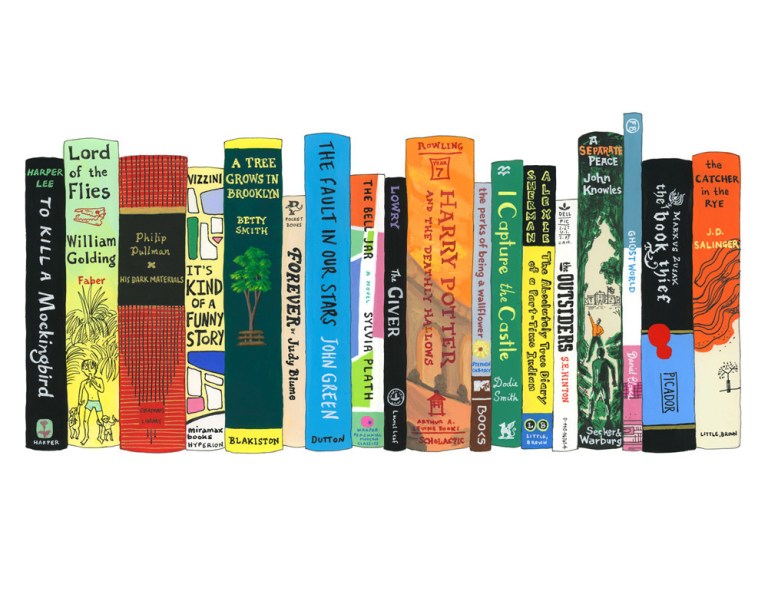The saying usually goes, “Don’t judge a book by its cover” — and I think this extrapolates to people. I don’t mean, “Don’t judge a person by how they look,” as you might think I do. What I really mean is, “Don’t judge a person by the cover of the book you see them reading.”
I’m the type of person who reads for fun, who carries an extra book in her bag in case she runs into a bit of free time. But recently, I’ve found myself pausing before placing a book in my bag, looking at the cover, and deciding whether or not to bring it based on what I presume people will think of me if they see me reading books like “To All The Boys I’ve Loved Before” in public.
This feeling has only been magnified at Stanford: a place I assume is full of extremely smart people who only read intelligent biographies, historical fiction with underlying political messages or business books about successful startups. In other words, everybody here has outgrown simple, enjoyable young adult (YA) fiction — everybody but me.
I’m not saying I only read at the level of John Green books. One thing I didn’t expect from college was the amount of reading I would have to do for class. When my grade in a 3-unit seminar is almost entirely based on my participation in class, and the quality of my participation in class is entirely based on whether or not I’ve read the texts, reading at a level above John Green becomes a necessity. Still, my enjoyable quick reads sit tantalizingly on the shelf, beckoning me to pick one up and settle down for an hour or two of mindless entertainment. Even when I do shake the fear of judgment from my mind (what are the chances anyone outside will care about what I read anyway?), guilt still comes gnawing at my mind. Stop reading for enjoyment; read what you have to for class instead! And, what are you getting out of this book? Are you learning anything? I can’t seem to shake the feeling that, at every moment, I have to be mentally challenging myself. After all, I’m at university. There shouldn’t be time to play anymore.
In English 190YA: “Young Adult Fiction,” a creative writing class led by Nina Schloesser Tarano, I participated in an interesting discussion on the merits of literary vs. genre fiction. We identified the main differences between the two, at least in the public’s eyes: Literary fiction “provides a means to better understand the world and delivers real emotional responses” (Huffpost) and is usually perceived as being better or more intelligent, while genre fiction is usually read for entertainment and escapism. Part of our class discussion was spent defending genre fiction, arguing that it wasn’t only used as an escape, until one of my classmates brought up a good point: Even if that is all YA is used for, what’s wrong with wanting to escape real life every once in a while?
There’s something magical about losing yourself in a world entirely built in the imagination, in the minds of characters with lives very much unlike yours. Sometimes you don’t want to be reminded of all the terrible things going on in the world right now. Sometimes what you want are stories about faraway stars, wizards and witches or young people falling in love again and again — and I realized that every other student in my creative writing class wanted the same thing. Freshmen and grad students alike sit in that classroom every week, talking passionately about our favorite YA books. Our ability to enjoy nice, easy stories isn’t determined by age or intellect, and I need not force myself to grow out of it.
One of the shelves in my dorm room is filled with YA books I brought from home. The stories are easy to read and not that deep or intellectual. They bring me comfort and offer a welcome break from the taxing, fast-paced nature of college life; they don’t need to be unraveled, analyzed or discussed; and they don’t need to fit the bill of what I think I should be reading. They just need to be enjoyed.
Contact Georgia Limcaoco at georgial ‘at’ stanford.edu.
